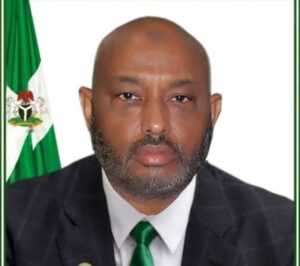The Standards Organization of Nigeria has inaugurated the National Technical Committee for the adoption and certification of education management standards.

This was made known to journalists during the inauguration of the Committee.
The Director General of SON, Farouk Salim, who was represented by the Director of training services in the organisation, Timothy Abner, stressed the need for the country to adhere to best international practices.
Such adherence will ensure smooth service delivery seeing as one of the challenges facing Nigeria has been attainment of international standards both in products and services delivery.
“One of SON’s mandates is to support all businesses in determining the quality of products/services using standardisation, certifications and quality assurance.
“As such our decision to adopt this international standard on educational organizations management system ISO 21001:2018 is apt at this time when we have opened our borders to all forms of trade with other African countries.
”It is important that we promote and sustain our learning institutions by ensuring that the services that are provided in our schools meet the needs of learners, promote equal opportunities for all students and earn the confidence and approval of learners’ sponsors in order to contribute their quota to national growth and development,” he said.
Abner, however, added that although government is doing a lot to upgrade the standard of products and the education sector, there should be additional effort of adopting and establishing this international best practice which will assist Nigeria to always deliver globally recognised services and products in different sectors of the economy.
He added that the Committee is saddled with the responsibility of drawing up requirements for bodies providing audit and certification of educational organisations management systems.
Abner said, “Nigeria’s education system is based on the (1)-6-3-3-4 formula. That is, one year pre-primary education, six years primary, three years junior secondary, three years senior secondary, and a minimum of four years tertiary education.
“Other countries like China, Germany and Ghana have successfully used this model of education before Nigeria adopted it in 1989 which is a clear indication that our educational system is not the root cause of the problem in the sector.
“The mode of delivering services, mission, visions and policies of our educational organizations are not backed up by measurable quality educational objectives. Although we agree that our government is doing a lot to upgrade the standard in the sector, however an additional effort of adopting and establishing this international best practice will assist Nigeria to always deliver globally recognized quality services in education at all times.”
Kindly like us on Facebook/twitter















